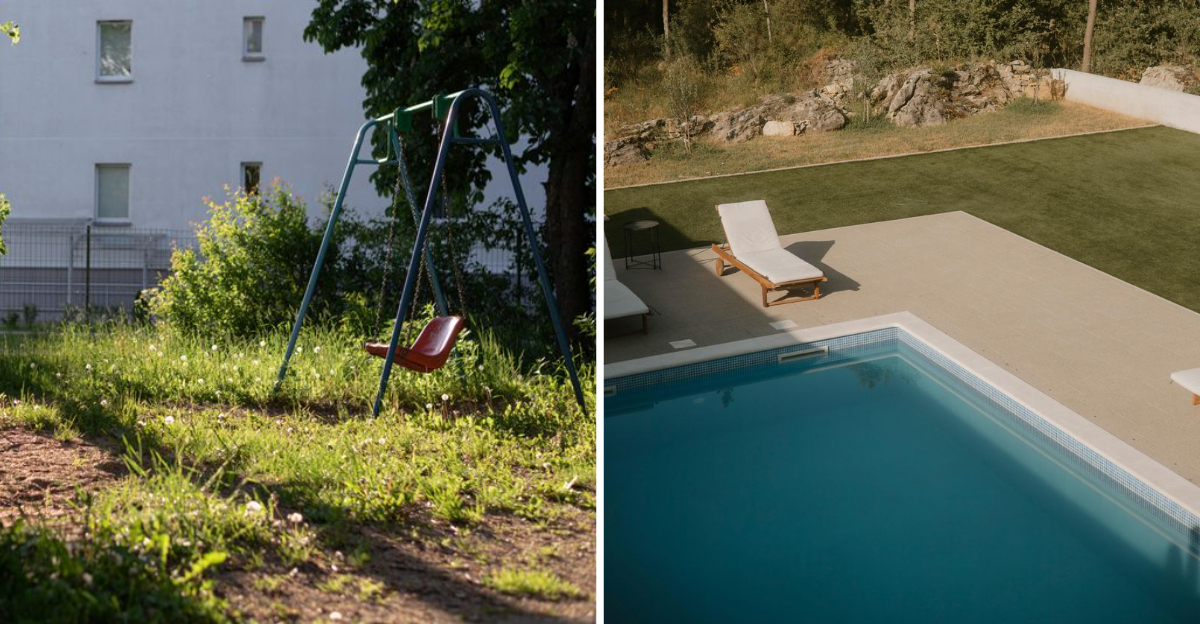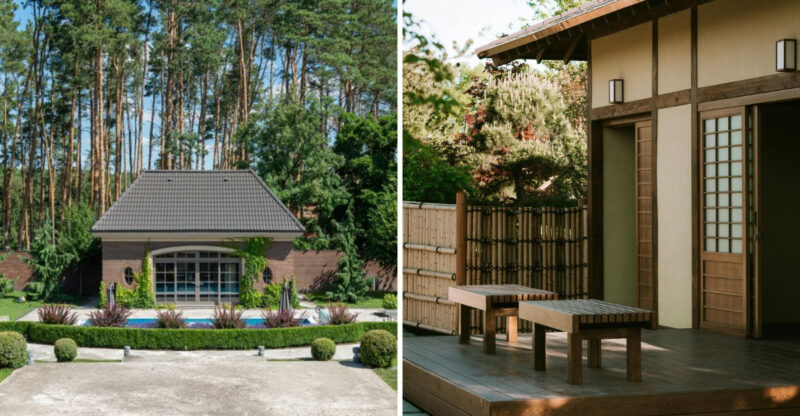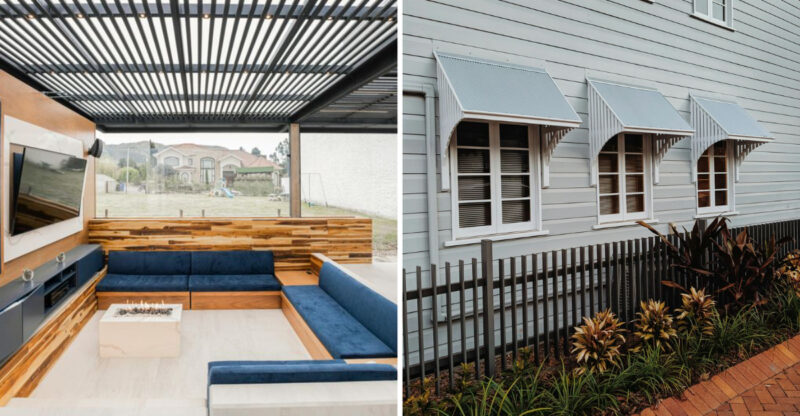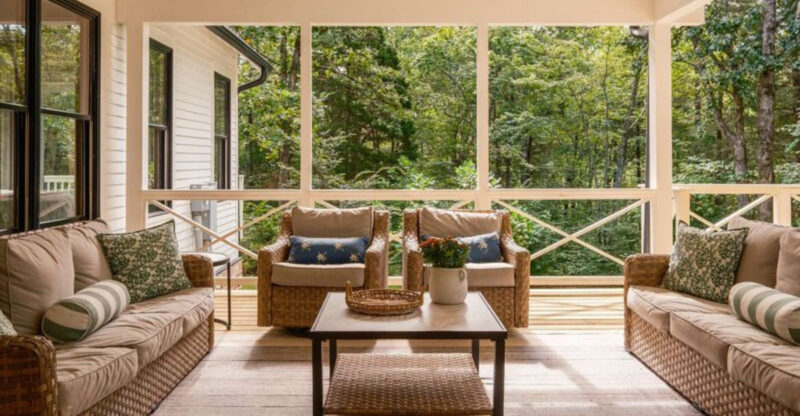9 Backyard Activities That Could Get You In Trouble Now

Remember when backyard fun was carefree and simple? Those days are changing fast. Modern regulations, safety concerns, and neighborhood policies have transformed many classic outdoor activities into potential legal headaches.
I’ve put together this list of common backyard activities that might land you in hot water these days from insurance nightmares to city code violations.
Keep in mind, rules and regulations vary by location, so some activities may be perfectly fine in your area while restricted elsewhere.
1. Overgrown Garden Play
Tall grass and wild gardens might seem like natural playgrounds, but they’re actually violation magnets in many areas. Local ordinances often restrict vegetation height to prevent pest infestations and maintain neighborhood aesthetics.
My friend received a $250 fine when her “wildlife habitat” garden exceeded the 8-inch height limit. Beyond fines, overgrown yards can harbor ticks and snakes, creating liability issues if neighborhood children play there.
Check your local codes before letting your garden grow wild. Many municipalities now require permits for natural landscaping, and some HOAs have even stricter rules about what constitutes acceptable yard maintenance.
2. Unsecured Fire Pit
Fire pits have become backyard staples, but using one without proper safety measures is increasingly problematic. Without appropriate clearance from structures, trees, and property lines, you’re risking more than just accidental burns.
Did you know many cities now require permits for permanent fire features? Even portable fire pits must follow specific guidelines about placement and supervision. I learned this lesson when my neighbor’s impromptu bonfire resulted in a fire department visit and a hefty citation.
Always check local burn ordinances before lighting up. Some areas prohibit open flames entirely during dry seasons, while others require spark screens, extinguishing equipment, and minimum distances from structures.
3. Trampoline Without Net
Trampolines without safety nets are jumping hazards that insurance companies increasingly refuse to cover. Many providers now specifically exclude trampoline-related injuries from policies unless specific safety requirements are met.
My neighbor’s daughter broke her arm after falling from their netless trampoline. Beyond the medical bills, they faced potential liability issues and an insurance nightmare. Some companies even conduct drive-by inspections to verify compliance with safety requirements.
If you’re keeping a trampoline, install a high-quality enclosure net, impact-absorbing padding over springs, and place it away from trees and structures. Some municipalities now treat trampolines like other structures, requiring permits and setbacks from property lines.
4. Climbing Trees
Tree climbing, once a childhood rite of passage, now raises serious liability concerns. If neighborhood kids climb your trees without permission and get injured, you might be responsible under attractive nuisance laws.
What happens if branches extend over property lines? I watched a neighborhood dispute erupt when children climbed a tree that straddled two yards. Property owners can be held liable for injuries even if they didn’t explicitly grant permission to climb.
Trees with accessible climbing branches near public spaces present particular risks. Consider posting no climbing signs, trimming lower branches, or installing fencing to reduce your liability. Some homeowners even add specific exclusions to their insurance policies regarding tree climbing activities.
5. Pet Waste Neglect
Leaving Fido’s droppings scattered across your yard isn’t just gross it’s increasingly against the law. Many cities have enacted ordinances specifically targeting pet waste management, even on private property.
Health departments consider accumulated pet waste a public health hazard that attracts pests and contaminates groundwater. I’ve seen neighbors report each other for persistent waste issues, resulting in official warnings and fines. Some HOAs even employ waste detection services that can identify neglectful pet owners through DNA testing.
Regular cleanup isn’t just about avoiding fines it’s about being a good neighbor and environmental steward. Consider designating a specific bathroom area in your yard and implement a daily cleaning routine to avoid problems.
6. BBQ Near Flammable Items
Positioning your grill under eaves, next to vinyl siding, or near dried brush creates serious fire hazards that violate most fire safety codes. Many homeowners don’t realize their weekend cookout setup might actually be illegal.
Fire departments recommend maintaining at least 10 feet of clearance between grills and structures. My uncle learned this lesson the expensive way when his improperly placed grill melted his vinyl siding and triggered an insurance investigation that revealed his non-compliant setup.
Always place grilling equipment on stable, non-combustible surfaces away from overhangs and vegetation. Some municipalities and HOAs have implemented specific rules about grill placement, especially for multi-family dwellings where shared spaces increase risks.
7. Flying Drones Recklessly
Operating drones over your property without understanding aviation regulations can lead to serious legal consequences. FAA rules apply even to recreational drone users in residential backyards.
Privacy concerns also arise when drones capture images of neighboring properties. I witnessed a heated confrontation when a drone enthusiast’s backyard flights repeatedly passed over a neighbor’s pool area. Beyond federal regulations, many cities have enacted local ordinances specifically restricting drone operation.
Always register drones weighing over 0.55 pounds with the FAA, maintain visual line-of-sight during operation, and respect airspace restrictions. Never fly over people without consent or in a manner that could be considered harassment or surveillance. Some homeowners associations have banned drone operations entirely within their communities.
8. Loose Swing Set
Wobbly swing sets aren’t just annoying they’re potential lawsuits waiting to happen. Improperly anchored playground equipment can tip over during use, causing serious injuries and opening homeowners to negligence claims.
My sister’s old metal swing set shifted during a birthday party, sending a young guest to the emergency room with a broken collarbone. Many municipalities now require permits for permanent play structures and mandate specific installation requirements including proper anchoring and impact-absorbing ground cover.
Always secure playground equipment according to manufacturer guidelines. This typically means concrete footings for larger sets and regular inspection of all components. Remember that even properly installed equipment requires maintenance as ground settles and components wear.
9. Pool Without Fence
That refreshing backyard pool becomes a legal liability without proper fencing. Most jurisdictions now mandate pool barriers meeting specific height requirements, self-closing gates, and child-resistant latches.
Your homeowner’s insurance might even drop coverage if your pool lacks required safety features. When my cousin installed an above-ground pool without barriers, he faced not only code enforcement issues but also a significant insurance premium increase.
Pool fencing laws aren’t just bureaucratic red tape they’re designed to prevent the tragic reality of child drownings. Even temporary pools often require safety measures, with some areas mandating fencing for anything deeper than 18 inches.






